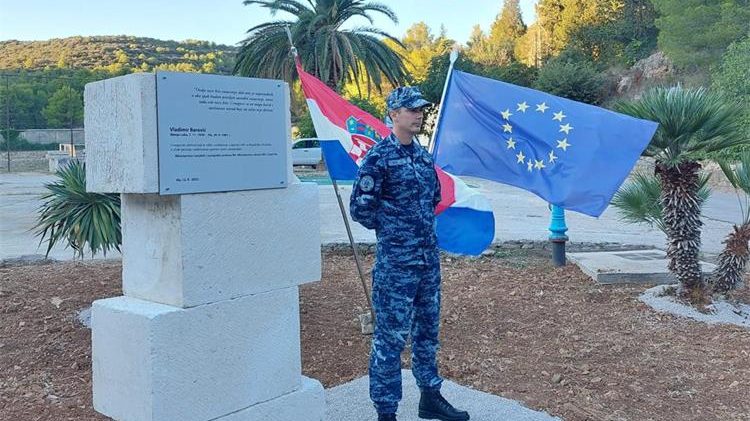“Barovic’s sense of honour did not allow him to bomb the coastal towns in Dalmatia when ordered to do so. As he said, ‘Montenegrins cannot fight and destroy a nation that did not do anything wrong,’” Montenegro’s Minister of Defence, Rasko Konjevic, said.
As a commander of the Pula military-maritime sector in Croatia, Barovic took part in negotiations about the withdrawal of the JNA from that city in 1991.
Media reported that, during those negotiations, Barovic said that Croatian towns would not be attacked while he was in command.
After he was ordered to shell coastal towns in northern Croatia from his ships, Barovic resigned and then committed suicide.
According to media reports, in his suicide note, he wrote that he had “decided to die with dignity because Montenegrins cannot fight and destroy a nation that did not do anything wrong”.
In July 2016, Montenegrin President Filip Vujanovic posthumously honored Barovic with the country’s Order for Bravery.
As part of Yugoslavia, Montenegro took part directly in the wars in Croatia and Bosnia and Herzegovina under the leadership of Serbia’s Slobodan Milosevic, although it saw no conflict on its own soil.
From December 1991, the JNA, including a large number of Montenegrin soldiers and reservists, besieged the Croatian city of Dubrovnik and nearby Konavle region for nine months.
Dubrovnik’s old town, a UNESCO world heritage site, suffered serious damage during the shelling.
In 2000, Milo Djukanovic, then prime minister of Montenegro, formally apologised to Croatia for the suffering and losses that Montenegrin soldiers had inflicted, particularly in the Dubrovnik area.
Since it became independent in 2006, Montenegro has held just eight trials for war crimes committed in Croatia, Bosnia and Herzegovina and Kosovo, but only low-level perpetrators have been prosecuted.
Samir Kajošević
This article was was originally published on balkaninsight.com















